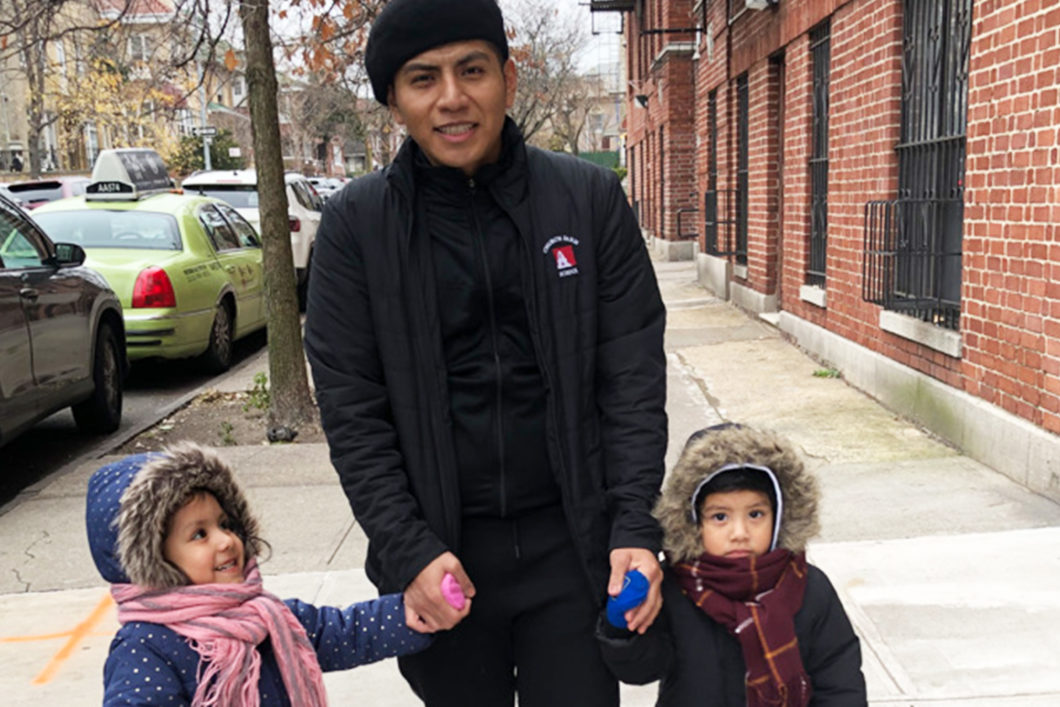As a CSD PhD student, Carlos Pérez Valle’s goal is to incorporate elements of social justice, improvement science, multilingualism, and cultural responsiveness into CSD research, which he hopes eventually translates into new legislative policy and/or current policy changes to help those often overlooked by the healthcare and education systems.
Quick Facts About Carlos
- CSD PhD student at McGill University in Montréal, Canada
- 1st generation college graduate and 1st in his family to pursue graduate school
- 2021 National NSSLHA Member Honors: Speaking Out and Being Heard recipient
- National NSSLHA member for 2 years
What’s Been Your Greatest Challenge as a CSD Student?
As an undergraduate SLP student, I discovered that while CSD programs advocate for diversity and equity, it’s not always the reality. As a student of color (Brown and Mixed-Latinx, to be exact), I experienced discrimination in my coursework. The most defining experience was when faculty questioned my being in the CSD major. So, while the intent for diversity and equity is great, there’s still plenty of work to be done.
What Advice Would You Give Fellow CSD Students Going Through Similar Challenges?
Find a support network—or create your own! As a non-traditional student with a full course load who worked full-time for the NYC Department of Education, I found it hard to find community among my peers. I signed up for ASHA’s S.T.E.P. Mentoring Program (MSLP) and connected with CSD professionals with similar ethnic backgrounds and academic/professional journeys, as well as those who encountered similar challenges as me.
I also found community and support through professors, clinical supervisors, and CSD lecturers, as well as my two mentors: Iván Campos, CCC-SLP, and Teresa Girolamo, PhD.
What Motivates You to Wake Up and Pursue Speech-Language Pathology?
During my time as a home visitor in the South Bronx for a school-readiness program, I witnessed misinformation, lack of cultural responsiveness, and mistrust that parents on my caseload experienced with their children’s speech-language pathologists. I found myself advocating for the families on my caseload—soliciting Individualized Family Service Plans (IFSPs), translating and gathering documents for court cases against local school district malpractice, and connecting them to advocacy organizations like Include NYC and Advocates for Children of New York. Moving forward, my hope is to help improve the science and policies that govern service delivery for communities like these.
I’m also motivated by my own experience as a CSD client. In December 2019, I came down with an idiopathic sensorineural hearing loss. As I learned more about my condition and how to access the services and support that I needed, I became aware of the systemic barriers that hinder people with communication needs from accessing quality services.
I acknowledge that I come from a place of access and privilege. I’m a multilingual U.S. citizen who is college-educated. Despite these social levers, it was still difficult to receive services at times. And if it was hard for me to access services, I can only imagine what others must go through. This shouldn’t be the norm.
Lastly, the interdisciplinary, collaborative, and non-sedentary nature of CSD drives me forward. My audiology professor said that CSD is perfect for individuals who are good at a little bit of everything—those who are both good with people but need moments of alone time. I thrive in environments like these!
What Does National NSSLHA Membership Mean To You?
I’m going to be honest . . . at first, I didn’t want to join National NSSLHA. As a student of color, I rarely saw students who looked like me in leadership positions when I browsed through the organization’s history online. However, when I learned about their student-led work, advocacy efforts, and work towards equity (i.e., their Raw Conversation sessions), I started to become fond of National NSSLHA. I started to feel included. And these inclusion efforts now make me proud to be a National NSSLHA member!
I’ve discovered a huge CSD community beyond my undergraduate program. The virtual nature of National NSSLHA helps me feel connected with other CSD students and professionals like me. And when things get tough, I find support from other members across the country, like National NSSLHA’s 2019-2021 Vice President for Planning, Allison Dungca—also a fellow MSLP member.
I now live in Canada for my PhD program but hope to continue expanding my network of CSD peers and contributing to National NSSLHA’s work toward equity. There are many wonderful, courageous, and driven students who are developing and leading great initiatives through the organization. Together, we’ll keep enacting change.

